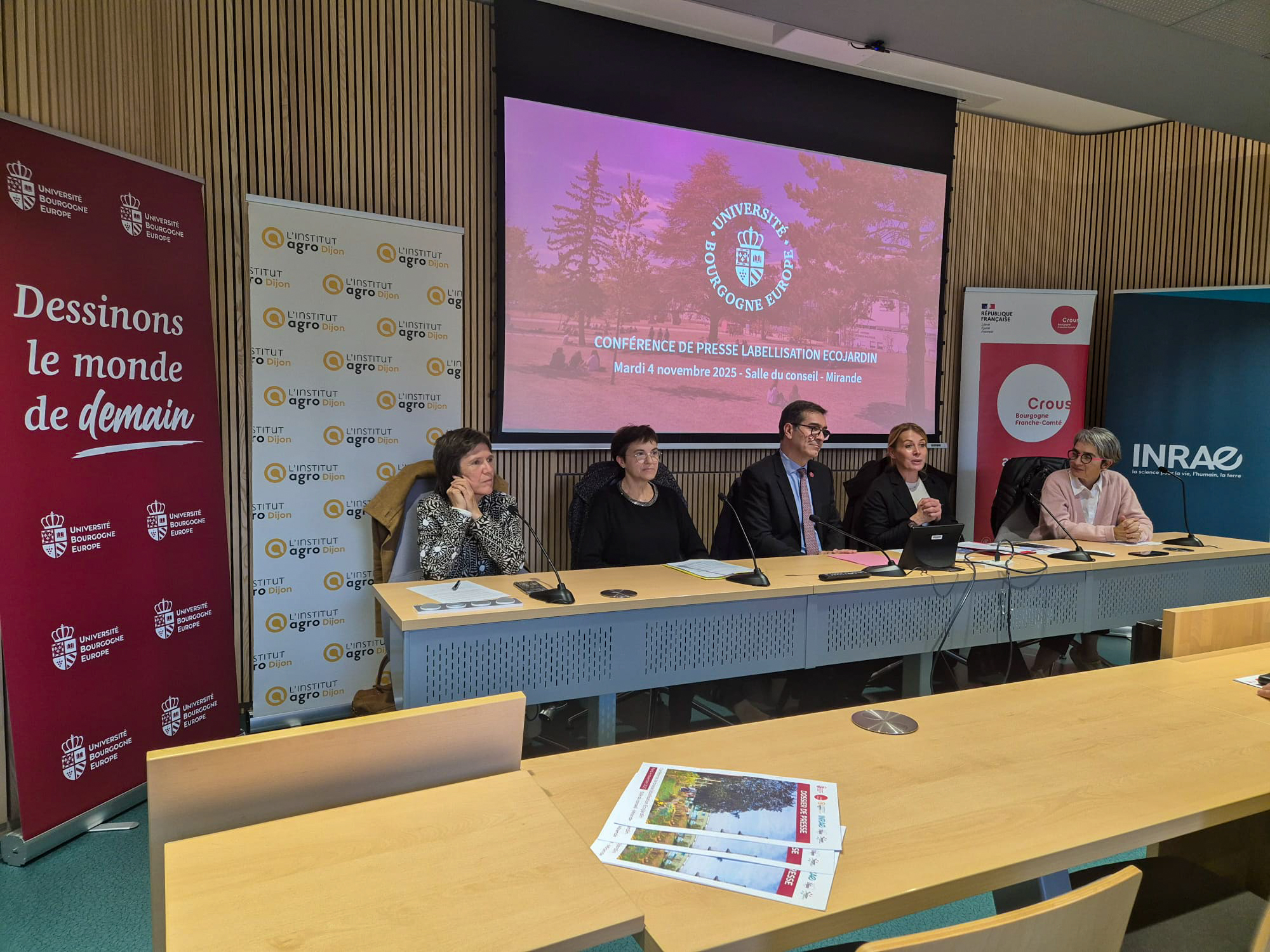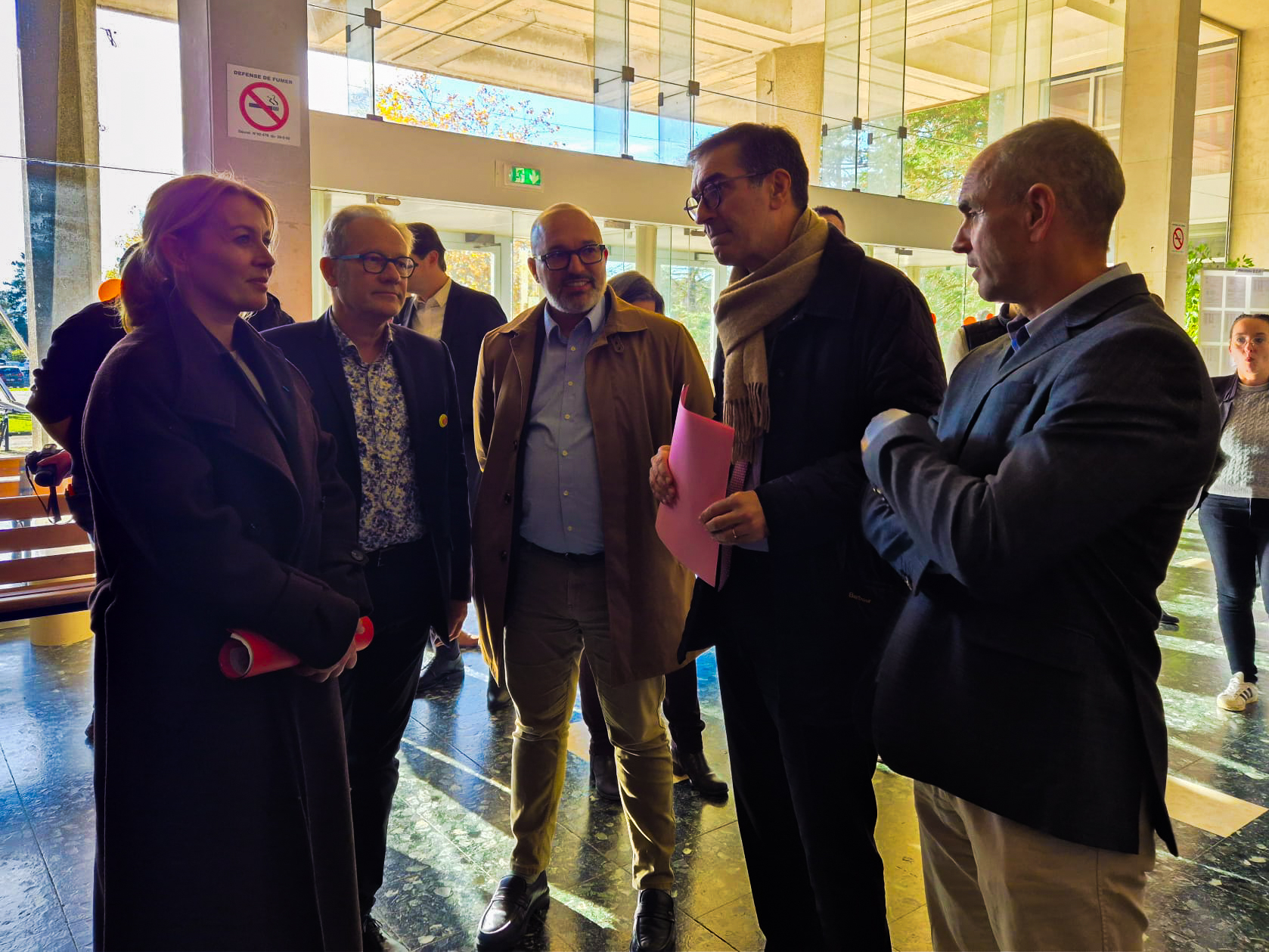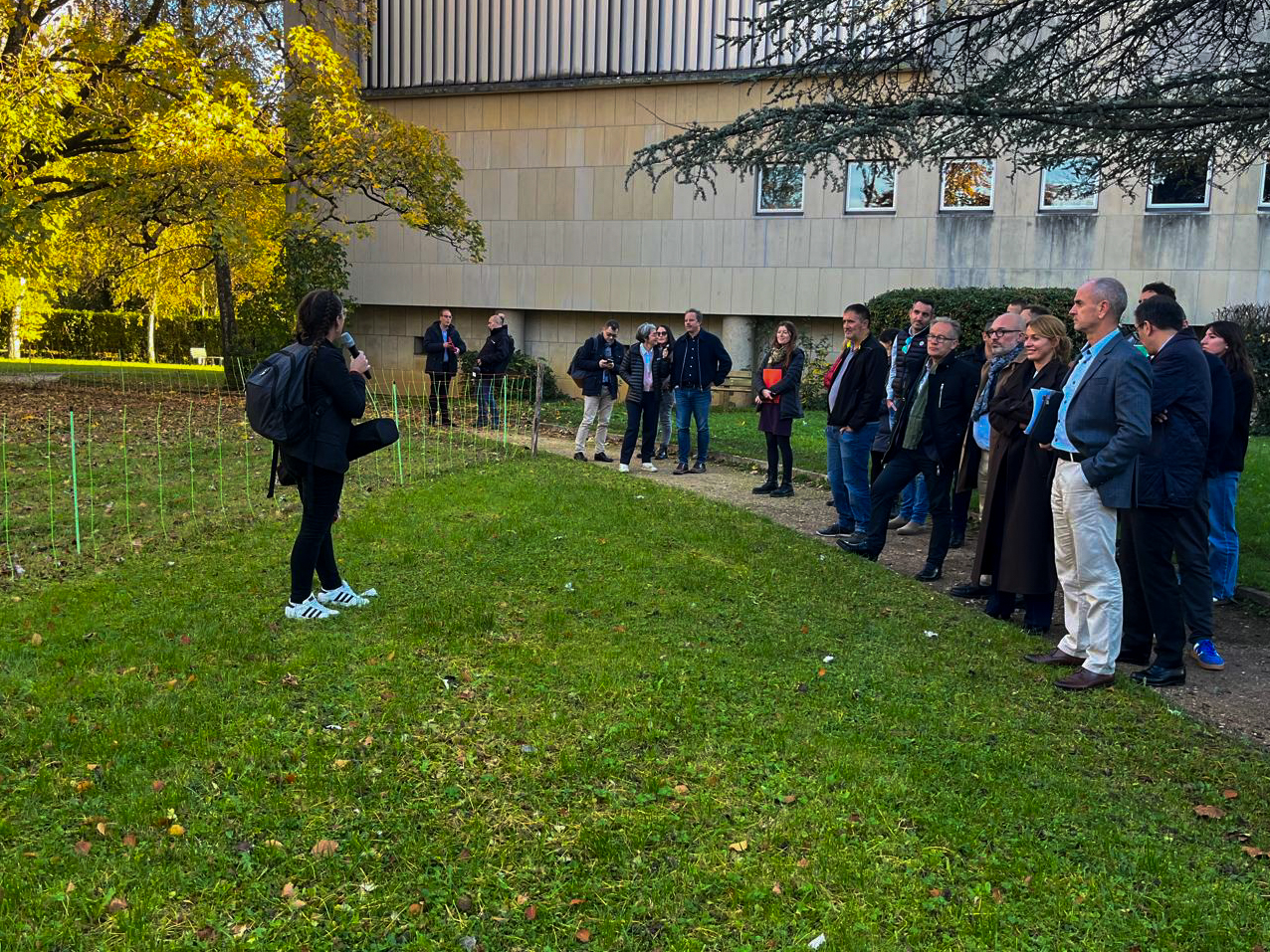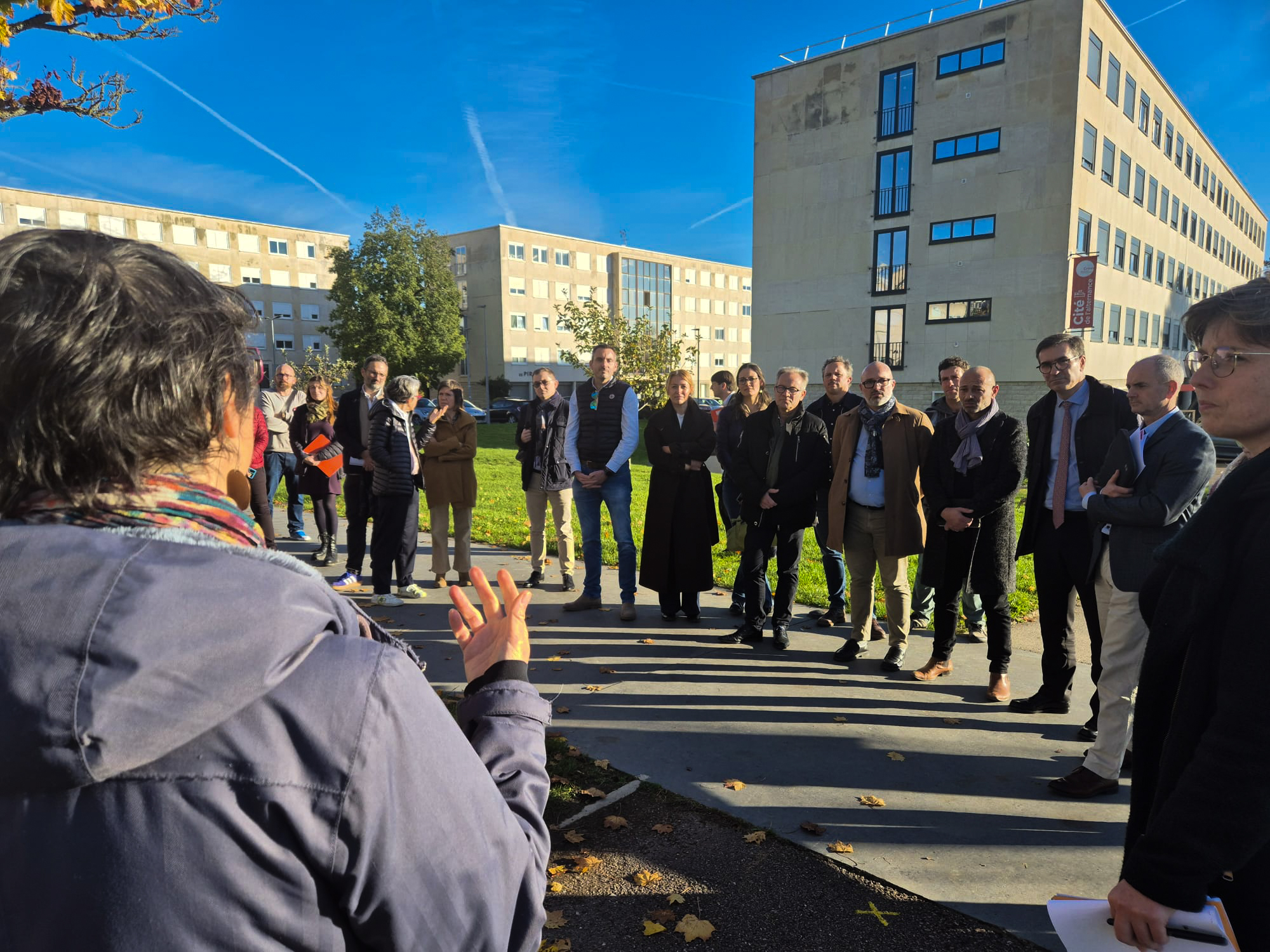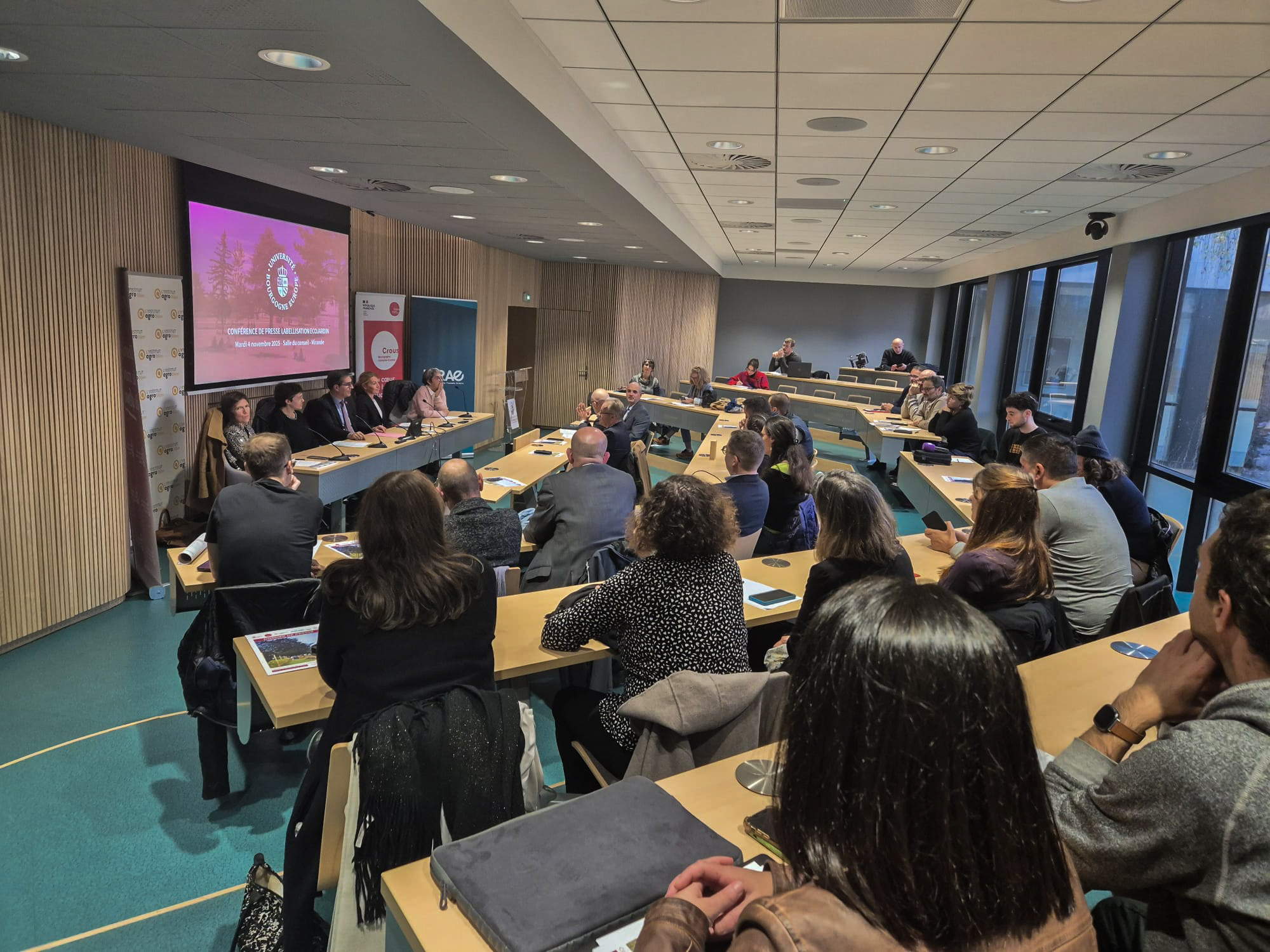UBE announces its EcoJardin certification
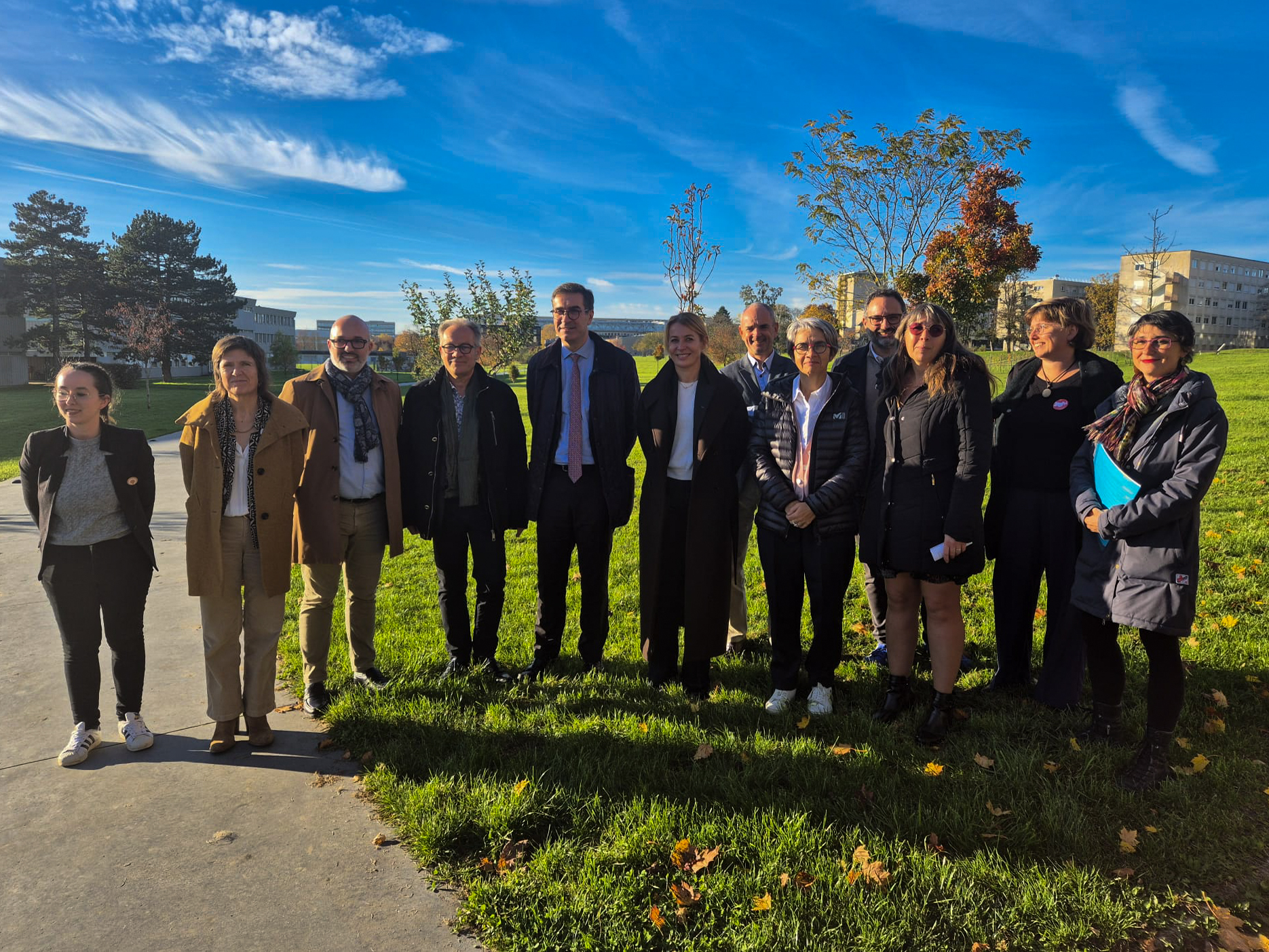
On Tuesday, 4 November, Université Bourgogne Europe held a press conference to announce that it had been awarded the EcoJardin label, a national distinction that recognises the ecological and responsible management of green spaces. The event brought together representatives from the university’s management, technical teams, institutional partners and several local media outlets.
A collective distinction
As Vincent Thomas, President of UBE, points out, “this label is the result of exemplary collective work, bringing together Université Bourgogne Europe, CROUS Bourgogne–Franche-Comté, Institut Agro Dijon, INRAE, the City and the Metropolis of Dijon. This label perfectly illustrates what we can achieve when we decide to work together towards a common goal. “
The Dijon Montmuzard campus is divided into several areas belonging to different partners. However, the management of all these spaces is considered from a global perspective, ensuring consistency in the sustainable management of the entire campus.
An exemplary and vibrant campus
The auditor identified several strengths on campus, including:
- the maintenance of biodiversity records,
- the implementation of educational initiatives,
- public awareness campaigns,
- and the excellent knowledge of the spaces by the various participants.
The university even achieved the highest score for water use and management. ‘Our responsibility is to show that ecological transition is being built in practice, on a daily basis, on our campuses,’ the president reminds us.
A collaborative effort
UBE and its institutional partners are working together to provide a pleasant living environment for future citizens and professionals who are training there. But also for the residents of the neighbourhood, for whom the Montmuzard campus is a real green lung in the heart of the city. This is what Murielle Baldi, Director General of Crous Bourgogne-Franche-Comté, reminds us: ‘Promoting biodiversity and nature on campuses means creating a natural, pleasant environment for students that is conducive to well-being.’ Student quality of life is the common thread running through CROUS BFC’s activities, enabling everyone to flourish.
Those present were able to discover the certified green spaces of each establishment through a tour and learn about each one’s sustainable management practices. As explained by Hélène Poirier, Director of Institut Agro Dijon, which creates ‘living spaces dedicated to learning and experimentation’ with their edible forest, for example. This is also the case for INRAE centre, which draws on the expertise of its researchers from the Biodiversity Facing Climate Change Collective and the INRAE Sustainable Food Collective.
The city and metropolitan area of Dijon also shares this approach, as green spaces in Dijon were already certified in 2014. The method was then extended to the entire region. The continuation of these efforts reflects the conviction of the city and metropolitan area of Dijon that ‘nature in the city is not an added bonus, but a prerequisite for collective well-being and sustainable quality of life’.
